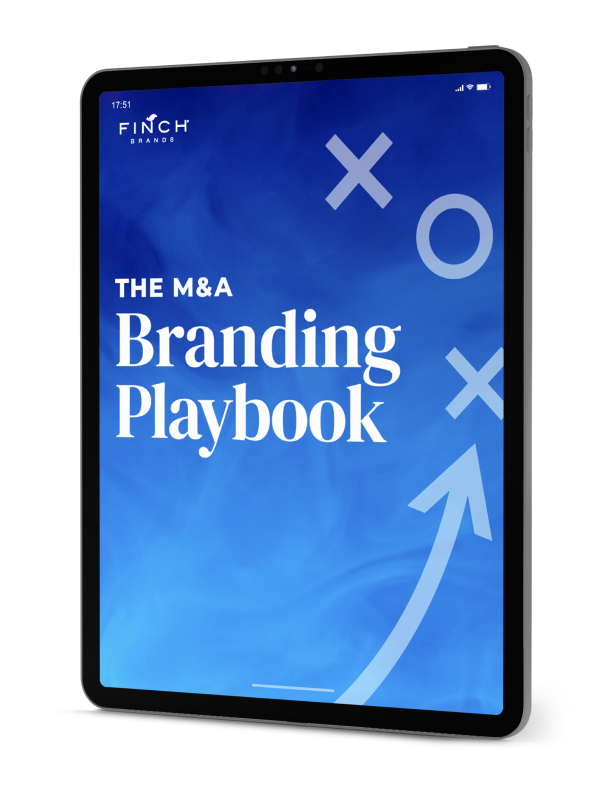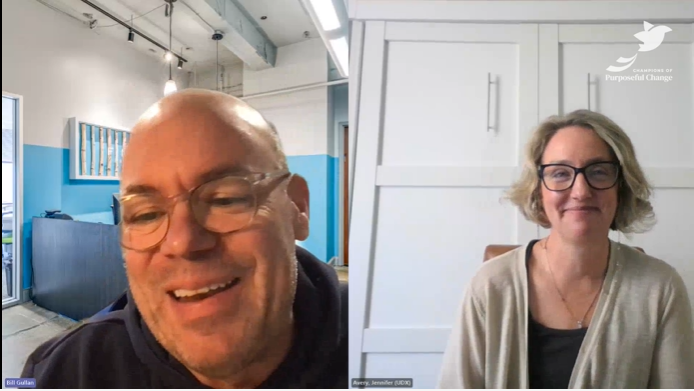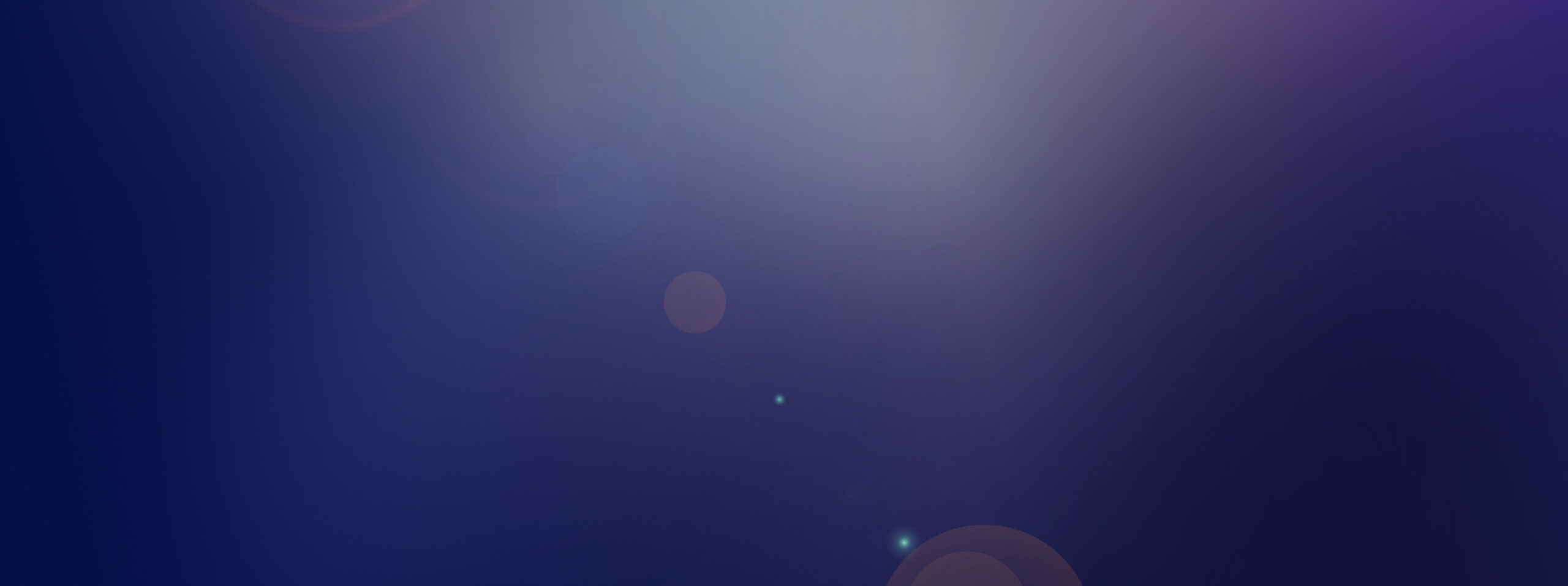Putting Guests at the Center – with Elizabeth Oates of ULTA Beauty
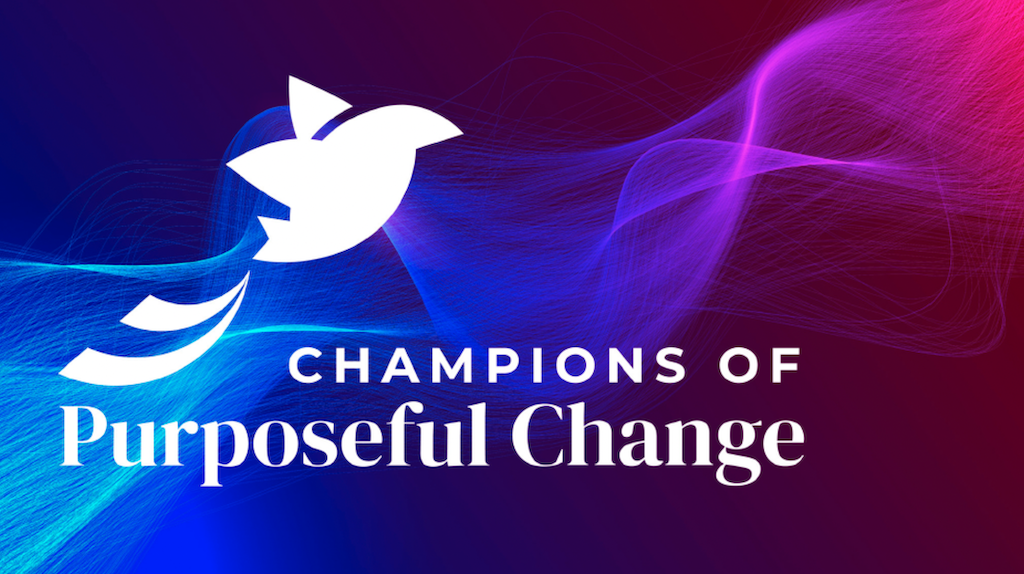
On this episode, we catch up with Elizabeth Oates, Vice President of Consumer Insights and Guest Services at ULTA Beauty. Join us as Elizabeth walks us through her career and talks about her role driving customer centricity at the largest beauty retailer in the U.S.. We hope you enjoy the show!
Bill Gullan:
Greetings one and all. This is Champions of Purposeful Change. I’m Bill Gullan, president of Finch Brands. Thank you for joining us today, and today we have the pleasure of a conversation with Elizabeth Oates. Elizabeth is the Vice President of Consumer Insights and Guest Services at Ulta Beauty. And we will talk with Elizabeth about her career path and that interesting title and what it means and her passion for consumer centricity, which as you’ll hear, she lights up in talking about the impact of that on a business and on a brand. And we’re really grateful for Elizabeth’s time. Enjoy.
We have Elizabeth Oates today who’s the Vice President of Consumer Insights and Guest Services at Ulta Beauty here on Champions for Purposeful Change. Elizabeth, thank you so much for spending time with us.
Elizabeth Oates:
Thank you for having me. I’m looking forward to our discussion.
Bill Gullan:
Excellent. Our pleasure. And let’s start where we typically do, which is going back to the beginning, I guess, and learning a little bit about your journey. Which is fascinating based on LinkedIn and other things that we’ve heard. So could you kind of take us through from what you might’ve been interested in initially to the twists and turns that you’ve taken in your career?
Elizabeth Oates:
Yeah, you got it. So I’ve been in the insights field, gosh, 20 years of this year. And throughout that time I’ve been lucky enough to have lots of great experiences. I started in this field with an opportunity to work for a really incredible mentor and leader. And in that role, it was really a huge springboard for me, not only in data collection and data analyzing, but it’s really about having someone to help you interpret and drive impact.
And that was the game changer for me because it not only helped me find passion in what I do, but be a step ahead and doing it in a way that was really impactful for a business, too. And it was that impact of the consumer insights that’s kept me in the field for 20 years. So I have had a chance to work in CPG at General Mills as well. And that was a really foundational experience for me as an insights professional to understand the branding and the building of products and brands from a consumer standpoint.
Then I was lucky enough to get into retail and found that the fast-paced competitive nature of retail was actually really fun. And being an advocate for consumers who are really passionate about your category made it even more fun. So getting into retail and into beauty, I’ve really had the chance to enjoy what I do and also make a difference for my business.
Bill Gullan:
Yeah, no doubt. And so going back into kind of your… I guess awakening into insights and your undergrad, I think was an international business-
Elizabeth Oates:
Correct. Yeah.
Bill Gullan:
… an MBA later in on the research side. But was there a period of time or an experience that you had that sort of turned you on to insights as a direction and caused you sort to fall in love with it?
Elizabeth Oates:
Yeah, I think for a lot of us insights professionals, there’s this sense of curiosity and asking why. And not only does it help us do our job, but it helps us have fun in doing our job. So there’s this natural parallel between being curious and doing insights. And for me that was the game changer. And like I said, being the voice with someone who’s really passionate about your category makes the job really impactful.
Bill Gullan:
Yeah, no doubt. Related to that, and having followed some of your participation in industry events, et cetera, there’s a tremendous amount of passion that comes through about making an organization truly customer centric. Could you help expand on that? Let’s define what it means and why you’ve found it to be important across your career.
Elizabeth Oates:
Yeah, absolutely. Well, I’d start with, it’s not just me. McKinsey study found that 65% of companies say that consumer insights should be part of transformational change. So I’m here, it’s not just me, but we’re all here to really push our businesses forward. But you asked about definition, and for me, at its core, consumer centricity is really defined by two things. One, it’s how an organization makes decisions with consumers in mind. And then two, how it brings its goods or services or messages to life for consumers. So it’s how we’re thinking and how we’re acting. And together those two things are really the idea of consumer centricity.
And from an insight standpoint and with all of that in mind, the ideal role for an insights team is really important for consideration. And I kind of think about it like this. If we pretend that we’re all driving a car together, the insights function is really the lens through which we see what’s around us. So we have a couple of tools in that situation. We have a rearview mirror, and that’s important because it tells us where we’ve been and how we got here. But we also have a windshield and that’s going to tell us what’s ahead, where we’re going and how we’re going to navigate the obstacles in front of us. And so, one relative to the other, the rearview mirror is about this big and the windshield is this big, and we should be using both of those tools and in their relative size.
Bill Gullan:
Right. Absolutely. And it may be obvious to those of us who work in the field, but what are the advantages that truly consumer-centric organizations have? I’m sure the McKinsey study delves into this too, but organizations that get there, companies that get there, what are the benefits to them in terms of financial performance or brand loyalty or some of the other things that matter?
Elizabeth Oates:
Yeah, absolutely. Well, in my business, just like many other retailers, I need my consumers more than they need me because if I don’t think about delivering on their needs, there’s a whole line of retailers that’ll give it a shot. Right? So it’s important for my business to understand how are consumers making decisions and why are they making those choices so that we can bring to life our brands and our products and our experiences in a way that will create that loyalty not just for today, but for the long term.
And so as we think about doing that, it’s good for business now and my choices today. It’s also good for businesses for the long term for our consumers to say, “Yeah, I’m going to keep coming back and remain top of mind.”
Bill Gullan:
Right. And for a retailer, a company like Ulta, I would imagine there are a bunch of different layers that kind of fit into customer centricity, and we’re going to get to this in a minute. But there is the retail and shopper experience, there is the sort of product development and allocation, some of the merchant decision making. There’s obviously marketing and communications. These are all relevant, I would think, to true customer centricity.
Elizabeth Oates:
100%. Yeah, the insights organization should really make customer centricity the heartbeat of the whole organization. And so we’re keeping our fingertip to the pulse and we’re being the voice of the customer, but it really does take everyone in the business to look at the insights and to act on those insights.
Bill Gullan:
Yeah, no doubt. No doubt. I mean, reflecting back on some of the roles that you’ve had and types of companies, you mentioned General Mills on the manufacturing side, many brands across the grocery store and beyond. Then kind of general merchandise retailer at Kohl’s now into a more of a specialty retailer at Ulta, although its wingspan is certainly broad. Any differences in how you think about insights as a role or as a function based on the different kind of shapes and sizes and focus points of companies like that?
Elizabeth Oates:
There certainly are differences, I think in terms of what makes insights effective, but I guess I would start with what actually makes them all the same. So across all of those businesses, there are different industries, there are different sizes, there are different… Everything in every way. And no matter which industry we’re looking at, if we are focused on filling knowledge gaps that enable choices for the business, that’s the common thread and that’s what’s going to make an insights team successful no matter the industry.
And I would say we are not here to be interesting. I sometimes laugh and I’m like, “Never be interesting.” And really, I mean, never be just interesting. It’s really at the end of the day about driving impact. So no matter what industry you’re in or what business you work for, if you are thinking about what choices and what actions you need to help the business take. Then you’re doing the right thing in bringing forward the insights and helping them understand why. So that we make choices that really are impactful and that we’re not just talking about things that are interesting.
Bill Gullan:
Yeah, totally. And so picking up on that, just as an insights practitioner one to another, what are ways in which insights teams and deliverables, I guess can transcend merely being interesting and going up on a shelf? Is it about how the data is socialized? Is it the way the studies are designed, the questions that are tackled? What are some techniques to ensure true institutional impact beyond just the raised eyebrow or the smile and nod that we may get when we present something?
Elizabeth Oates:
Right. And I think as an insights professional and being someone who’s curious, I love to just start running and asking questions. But I usually say, and in this case it’s a but. To make that work and that run and that data collection really impactful, it’s about starting before, before we actually go ask anybody any questions. And we work with our business partners to say, “What challenges are you facing? What choices are you trying to make? What’s the action that we are or are not going to take based on an insight? And what knowledge gap do you have right now today that if we filled it would enable you to take that action?”
And it’s really that process that there’s a lot more upfront work in that process than just going and answering questions. But that is really what makes the whole process of insights and data collection meaningful and impactful is if we know exactly what success looks like from the beginning.
Bill Gullan:
The decision support that you’re providing and the key questions and the role that they’re going to take in organizational direction.
Elizabeth Oates:
Yeah.
Bill Gullan:
Excellent. It makes a lot of sense. And obviously we, on the supplier side, think a lot about from study design through to the nature and method of deliverables how to do that. And it’s nice to know that internal insights teams have the same sort of obsession.
Elizabeth Oates:
Absolutely. Absolutely.
Bill Gullan:
Yeah. And so you talked earlier about the role of insights and the windshield and… Dropped my drink. The rearview mirror. I noticed in your title guest services is there as well. That seems distinctive and frankly progressive, given to your point, the role of insights in illuminating what the customer sees and feels. Could you comment on how that plays out day in and day out in the role? And also what leads to that?
Elizabeth Oates:
Yeah, absolutely. So from a guest services standpoint, we are 110% focused on making sure that our guests have wow experiences every day. And when and if they don’t have a wow experience, how might we fix it for them or help them through having a positive experience? So absolutely, there’s an operational side of guest services and guests are calling us with pain points. And as an insights team, we’re trying to fix pain points. So there’s a natural listening that having insights and guest services together and listening to what our customers need, what they’re asking for, where they’re struggling, that we can make one plus one equal three here. So that we can listen from all factions.
And we also actually have a customer experience measurement also included in the insights team. So we think about measuring every experience and every channel every day, listening to what our guests are calling and telling us about. And also going out and asking them proactively, “What are you looking for? What do you need?” And that kind of magical trifecta, if you will, is the commonality in all that is putting our guests at the center.
Bill Gullan:
Right. And that’s very progressive thinking. I mean, I think one of the challenges historically for traditional retailers in this era of customer experience and consumer centricity is that the classic organizational structure may not have organized or centered the experience. It used to be the sort of retail ops and they’re in charge of the stores. And then there’s the merchant team and they’re in charge of the product, and then there’s marketing who’s in charge of the comms. And the integration of that mindset as represented in your role seems to be very distinctive and futuristic in the right kind of ways.
Elizabeth Oates:
Yeah, you’re right. And actually when I started here, insights and customer experience were still two separate teams. And in 2021, we merged the teams together and we found that it was a really natural connection. We kind of thought, “Oh, is this going to be a little bit of start stop, here we go, figure out who does what?” But as we looked back, we’re like, “Well, hey, from an insights team, customer experience was one of our natural partners all along.” We were really close partners.
And now as we think about customer experience measurement, there is that natural carryover between asking why we’re customers in general and asking why in specific experiences. And putting those together to look through the windshield and say, “How do we innovate for the future,” is a really natural way to work in this world.
Bill Gullan:
It makes a ton of sense. ‘Cause how can you be an effective insights person if you’re divorced from the feedback that comes in to the stores? And then how can you be an effective-
Elizabeth Oates:
Absolutely.
Bill Gullan:
… guest services person if you’re divorced from all of the data that’s collected about how people are viewing the world as well as the Ulta experience. It makes a lot of sense, but I’d imagine it’s not the easiest battleship to turn around in large organizations either. So it’s exciting to hear that that’s the-
Elizabeth Oates:
It’s fun, and I’m really proud of the team that I get the opportunity to work with here every day. So we have really created a function that is not a deli counter, take a number and we’ll call you when we get to you. But it’s more about partnership with the business and understanding what the business’s needs are and then using that trifecta of teams to say, “All right, here’s how we’re going to push forward and do what’s right for our guests.”
Bill Gullan:
Yeah, very cool. And this next question, obviously don’t share things that might be proprietary or secret with our listeners. But the beauty world and the world that Ulta plays and just constantly changing nature of the consumer dialogue, there’s big social trends around beauty and body image. There’s a lot of changes in communications approaches with influencers, with TikTok, et cetera. How do these changes and shifts and trends affect a business like Ulta and how does insights enable you to be canary in the coal mine, looking out the windshield, whatever metaphor we want to use to help inform the business as to how the world is changing around them?
Elizabeth Oates:
Yeah, I would say there’s two pieces to my answer on this one, in that one is there’s absolutely changes in how we collect and how we even analyze data. But at the core and all together, it really all goes back to understanding the people behind the data. And that hasn’t changed. So if we’re really focused on the humans for which we’re collecting information and acting for, that’s real and true.
Now as we think about the beauty industry, one of the things that I’m really proud of and how we’ve done from an insight standpoint is to say, “What is it about our industry and why are consumers interested in this category? Why are people so passionate?” And as we look at that why, we really found that beauty has power. And it is power not just in we’re setting a standard and here’s the standard you should go look for. But it’s really about power of self-care, the power of self-expression, and the power of togetherness.
And that all in, as we look at those powers of beauty, we’ve also found that beauty hasn’t always been kind, and that doesn’t sound like a new thought. But really what we’re thinking now is how do we enable beauty to be a force of good for everyone and really enable everyone to feel those positive powers of beauty and self-care and self-expression, in particular.
And so as an insights team, we’ve taken all of those new methods of collecting data really focused on the human and help push our business. But also, we think importantly this category forward in a way that’s right for everyone because we do want beauty to be a force of good for all.
Bill Gullan:
To the point about data collection and new methods. And again, share only that what you’re comfortable sharing. But as the nature of the consumer interaction with the category shifts with TikTok and influencers. I’d imagine there are new sources of listening and different strands that you might be pulling into this analysis that probably are changing constantly. But maybe in the last X number of years have changed social media, obviously, etc.
Elizabeth Oates:
Absolutely.
Bill Gullan:
So, very different sources and inputs I would think.
Elizabeth Oates:
Absolutely. And one of the things that we’ve really been working on thinking about is, how are we listening broadly, but how are we asking questions deeply?
Bill Gullan:
Yeah, sure.
Elizabeth Oates:
And that combination I think is what’s going to push us forward into the future. And even asking questions of those who are listening to customers every day. So even in this same realm, we went out and talked with our associates. So the folks who are in the store every day, and we said, “All right, we know that there’s something about beauty that creates joy for consumers. What do you see every day and how might we help more consumers find joy in beauty?” And our associates told us, “Hey, there’s a big barrier that we see come to life every day in our stores, and that is sort of this internal self-talk track that says, ‘I’m not good enough. I can’t do that. I can’t be that.'” That self-critic is something that our associates were like, “This is here every day in every way.”
And so now we’re on a mission, we’re calling it the Joy Project, and we’re talking about how might we get over that and tell that self-critic to go and just be quiet for a while. ‘Cause we’ve got some joy to have. We’ve got some self-expression and some self-care to do, and we’re going to move beyond that self-critic. So we are, like I said, listening broadly, asking deeply and making sure that we have our ears open to all sources of data.
Bill Gullan:
Yeah, no doubt. And to your point, as it relates to guest services… The Ulta guest services team in stores, at least in my experience, is a lot more energetic around helping customers discover something new or address questions. Or talk down that talk track that might be preventing them from fully experiencing all that is on offer at a store like that. And I’d imagine that’s another way in which that guest feedback loop through guest services is helpful.
Elizabeth Oates:
Absolutely. Absolutely. And I’m just so proud to get to work with the folks in this organization who are talking with our guests and representing our brand every day. Because their passion really shines through and our guests feel it and the welcoming that they get in a store or the kindness that they get on a call or the response that they get in the chat, too. So I’m really proud of this team.
Bill Gullan:
No, totally. Again, our admonition stays, which is tell me only what you’re comfortable sharing, but obviously we go to these shows you do, too. There’s a lot happening in insights, whether it’s new technologies or new approaches. And anything that you’re particularly excited about? Everyone’s talking about AI in different ways, but anything that you sort of have your eye on trend-wise, just in our shared occupation that are the types of things that you think might represent some real innovation or some forward motion?
Elizabeth Oates:
So absolutely, we’re listening and trying out and experimenting with new tools, whether it be AI or GenAI or in all of those listening tools and creation tools as well. I think what we’re really finding to be the most interesting though are the tools in which bring forward the human.
So GenAI can create a lot of things, but I don’t know if GenAI can create your own passion. So what are consumers really passionate about and how might we listen in a way that gets us to that real core? And so we are trying all sorts of new things, and we’re also going back to some old school methods of really talking to people and listening to people.
Bill Gullan:
Excellent. It is interesting when we go to a show or read an industry publication or whatever it is, a mix of shiny new things that are interesting. They’re based on real changes in what technology enables us to do or whatever, but also these sort of tried and true authentically human interactions that have the potential as they always have. And maybe technology makes them more efficient, or maybe it makes the coding-
Elizabeth Oates:
I love all of that.
Bill Gullan:
… better, whatever. But there are these sort of tried and true methods that remain relevant even if they take a slightly different form. Today, I’d imagine our listenership… And again, podcast is kind of hard to have data, but our sense is that it includes folks who maybe students or maybe starting out in their career or starting over. And I’d imagine many of them listening to your passion for this as well as the development that you’ve had throughout your own journey are inspired and interested.
And any words of wisdom that you’d share for someone who’s sort in that position, who finds your career path intriguing and some of the routes that you’ve taken intriguing, but would like to… Are there any mantras? Are there any sort of philosophies that have been important to you, Elizabeth along the way?
Elizabeth Oates:
Sure. I use the words passion and things that you feel I find a lot of joy in. I use those words a lot, and that includes my recommendations for someone on a career path. Right? So find something that really leans into a passion for you, whether it’s insights or insights as part of a specific industry or category. Not only will you do your best work when you find an industry or a company about what you are passionate, but your job will become a career and it’ll be one in which you find fulfillment. So I’d say lean in into what really makes you smile and brings you joy every day.
Bill Gullan:
No, totally. You mentioned curiosity, are you just wired that way, or was there something that sort of summoned that depth of just interest that leads to an insights career or other things? I know some of it may just be the kind of people that we all might be individually, but anything you can sort of think back to that kind of awakened that?
Elizabeth Oates:
I think it’s a curiosity connected to an outcome, right?
Bill Gullan:
Yes.
Elizabeth Oates:
And for me… So it’s not just reading and doing everything. It’s about understanding if and why and how might I learn more about this thing so that I can do this other thing. And in my business and my career aspects, it’s about what do I want to do for this business? Okay, therefore, what kind of questions do I have to ask in order to make that outcome happen? So I’d say it’s a curiosity connected to an outcome.
Bill Gullan:
To that point, sometimes when I go speak at colleges or talk to interns or folks who are networking on their career and they ask what they can do to learn about what it is that we do, one of the things I tell them… And I find that I do this myself when I’m with my kids at the grocery stores, if you look kind of to your left and right and you notice something new on the shelf, you sort of think back to what… And not all of these were good decisions, I guess, but what led to this? Was there a kernel of truth that someone discovered somewhere that suggested that we need a new kind of yogurt that has more protein or whatever the case may be.
Trying to think through that chain of events, I guess, and insights that led to all of the choices that got made to this particular item now being on a shelf in a Wegmans or in a Publix or in a grocery store. And I find that I can’t not think that way even when I’m trying to find the things that we need for a family, day in and day out. And, I guess the curious folks who sort of have that and think about outcomes might see those lines where not everybody would, but yeah… Good, good certainly advice.
Elizabeth Oates:
Yeah, we talked about path to purchase, but also path to development, and that’s really where the curiosity comes into play.
Bill Gullan:
Sure, no doubt. Well, Elizabeth, thank you so much for your time and sharing a bit of your insight, your own career. And Ulta really is a fascinating experience as a consumer and a brand that’s fun to watch and experience and learn from as we go. Greatly appreciate your time.
Elizabeth Oates:
Absolutely. Nice talking with you.
Bill Gullan:
Many thanks to Elizabeth for her time today. Really grateful for her insight, and Ulta is such a cool company. And hearing about from the inside, how it’s structured, how it works is a great honor. And we appreciate Elizabeth spending time with us.
Three ways to support us here at Champions of Purposeful Change, if you so desire. Those three are to keep a dialogue going on Twitter, on Facebook, and all the usual ways. Let us know what you think about this podcast and suggestions for future guests, future topics. Second way to support us if you are so inclined, is to go into the podcast app or store of your choice, give us a rating and a review that’ll help us get found. And also, it’ll be helpful feedback as well. And the third way is to click subscribe. We’re back on our monthly cadence here, so to ensure that you do not miss a single episode, clicking subscribe within that podcast app or that podcast store, we’ll make sure that our new episodes float magically down into the device of your choice when they are available.
That is all for today. We appreciate your time and we’ll sign off from the Cradle of Liberty.

